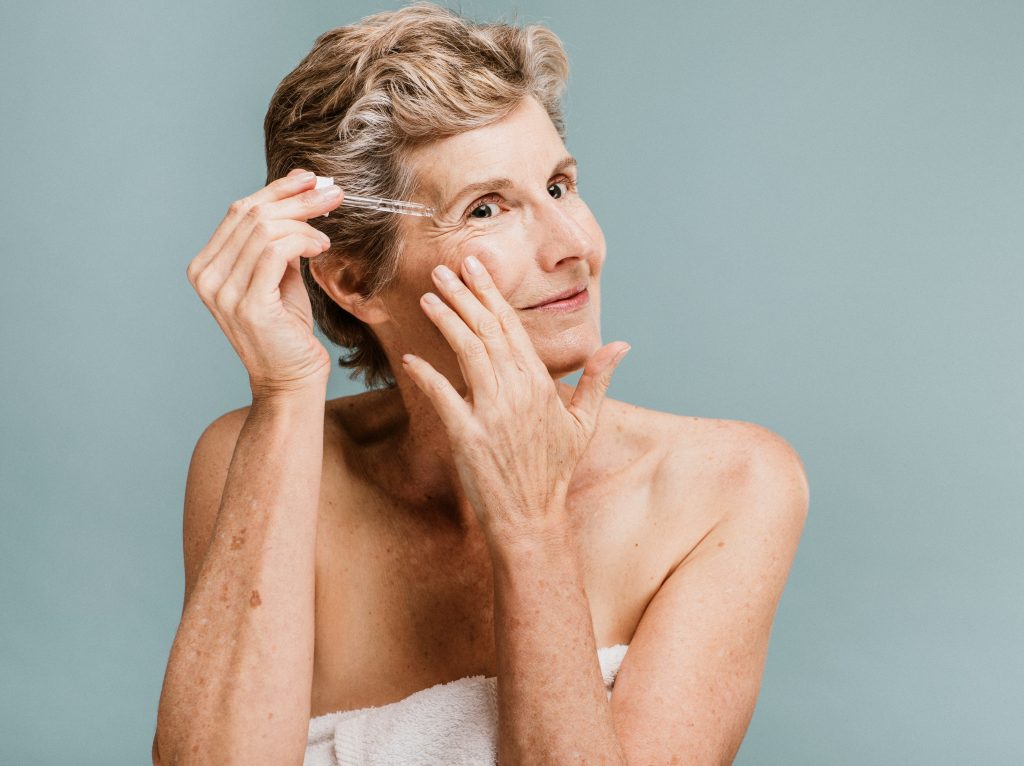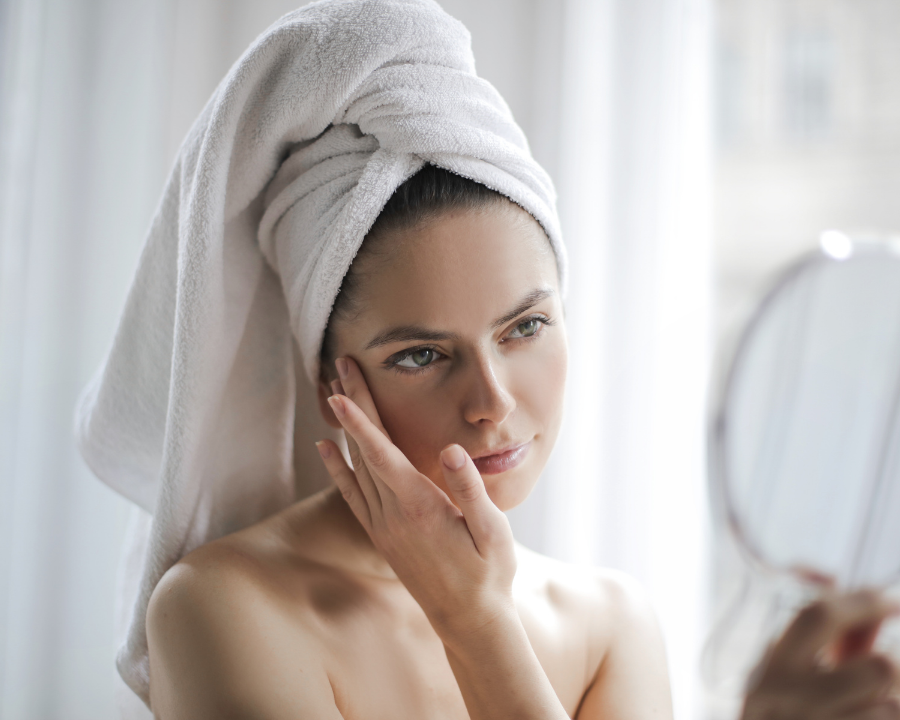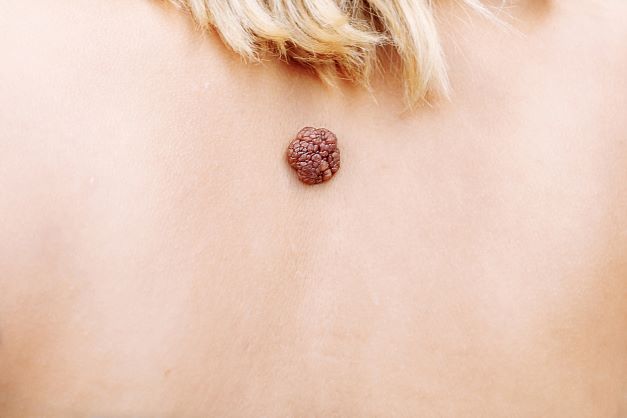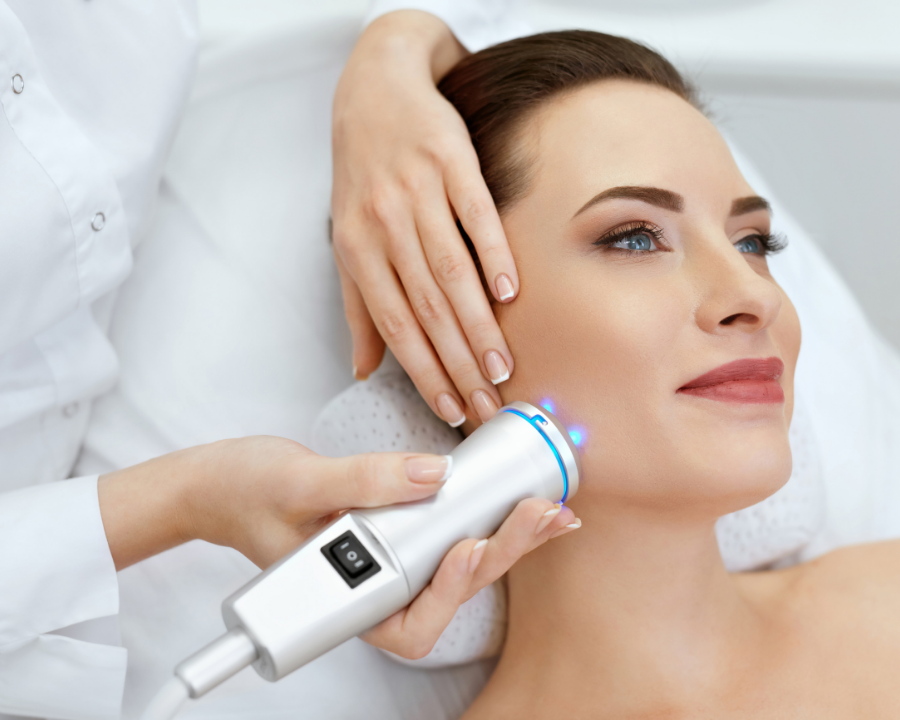With each season we tend to switch out many things, our wardrobes, and home decor, but what about your skincare products? The fall and winter months seem to bring dry skin to many people. Dry skin is extremely common when the weather turns cooler. Our skin traps moisture thanks to natural oils, which act as a barrier of protection and hydration for our skin. Unfortunately, dry skin is caused by a weakened skin barrier and the reason for that is because there is a decrease in your natural oils from overwashing or using products that tend to dry out your skin.
Some Dry skin symptoms are itching, flakiness and redness, in some severe dry skin cases your skin may become cracked and bleed.
Why is my skin dry in colder months?
When cold temperatures hit, humidity outside is lower and cold temperatures also mean you are spending more of your time inside than outside, which isn’t the best for your skin. During the colder months while we are inside we are exposed to forced heat and air that decreases the humidity indoors and causes dry skin. So investing in a humidifier during colder months would be ideal.
During colder months there is a lot less sunlight, and the sunlight is a good source of vitamin D. Sunlight is also a natural anti-inflammatory that helps with certain health conditions. While warmer months, many people are in a pool and chlorine is a skin irritant, but the sun also helps people who suffer from eczema, many have flare-ups in the winter and at times a light treatment or phototherapy is recommended to help with the flare-ups and make their skin less itchy. Genetics also plays a role in if you have dry skin or not. Some people have drier skin as they do not produce enough of a protein called filaggrin, which helps in forming and hydrating your skin barrier.
Combating Dry Skin
During those colder months, you may have to make some changes to your skincare routine along with the products you are using to help combat dry skin. You’ll want to limit the length of your showers. A long hot shower is not the best idea when you have dry skin, as overwashing and the heat in the water dries the oils out of your skin. So the hotter the water you use, the drier your skin will be. Right after you shower, you’ll want to apply moisturizer. Applying moisturizer on wet skin is more beneficial than on dry skin as putting lotion on wet skin helps trap moisture.
Read ingredient labels and look for fragrance-free products. Unfortunately, products that have a fragrance to them end up irritating your skin. From lotions, and soaps to detergents. Many lotions tend to have fragrance and alcohol in them, resulting in skin irritations. However, dermatologists favor creams over lotions. You don’t want to over-exfoliate. Over-exfoliating is damaging as it strips the skin of its moisture and natural oils, resulting in itchy, dry, and cracked skin. So try to exfoliate once or twice a week. Protect your hands, it’s very common to get dry, cracked hands. Don’t stop washing or sanitizing your hands, just moisturize your hands more often, and in colder temperatures wear gloves outside.
The best thing to do to combat dry skin in colder months is to invest in a good humidifier. Using a humidifier helps put moisture in the air drastically helping with dry skin.
What if my dry skin isn’t because of cold weather?
As we age our skin produces less oil and people over the age of 40 tend to have naturally drier skin, so you’ll want to moisturize more often. Weather doesn’t necessarily have to do with the weather but can affect certain conditions. The stress of the holidays and drinking more caffeine than usual can make a person who has rosacea worse. Lack of sunlight affects people with psoriasis and eczema tends to flare up and get worse in the summer months since your skin is more irritated by sweat and you may be spending more time in a pool.
Dry skin can also be a sign of health conditions like diabetes, hypothyroidism, kidney failure, or a nutrition deficiency. If you see that your skin is getting darker in areas where you are scratching, or inflamed skin starts to crust over this could be a bacterial infection. Some over-the-counter hydrocortisone creams may help in certain circumstances, however, it’s always best to see a dermatologist to get checked out.





